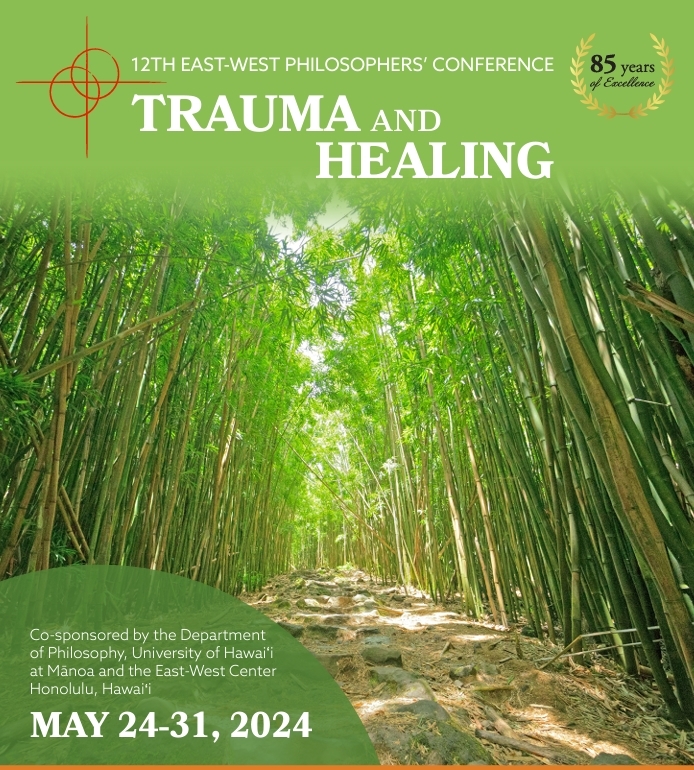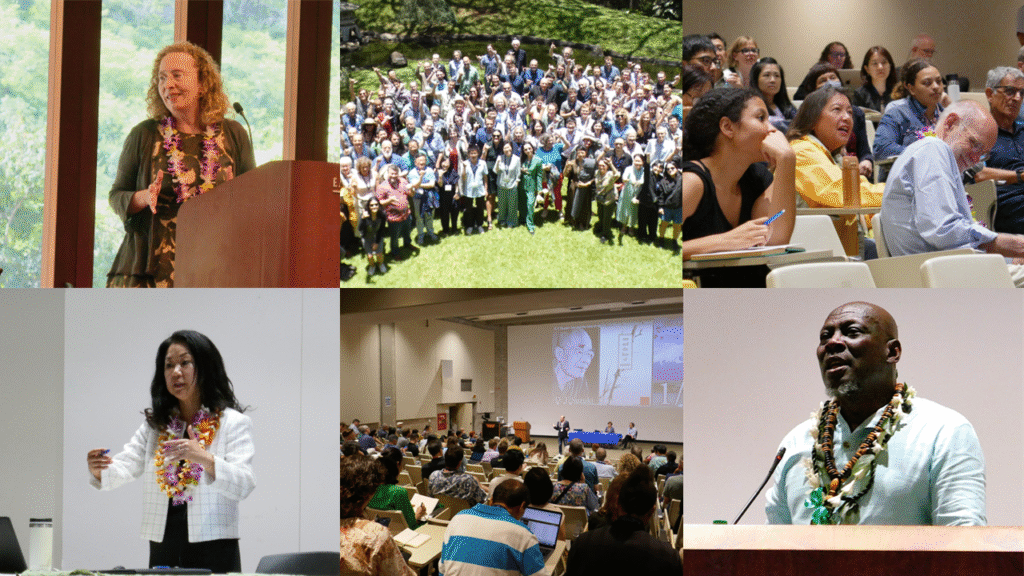
The 2024 East-West Philosophers’ Conference at the University of Hawaiʻi is a prominent international forum dedicated to cross-cultural philosophical inquiry. Established in 1939, the conference aims to integrate Eastern and Western philosophical traditions and has played a crucial role in fostering dialogue among diverse schools of thought. It is now the world’s largest conference in comparative philosophy. Among the first participants at the inaugural 1939 meeting were D. T. Suzuki and Junjiro Takakusu, two eminent Buddhist scholars from Japan.
The 12th East-West Philosophers’ Conference, held this year, attracted 339 participants from 29 countries across five continents. The theme of the conference was “Trauma and Healing.” It featured seven plenary sessions, seventy-nine concurrent and roundtable sessions, and three evening events. Two keynote speakers, each deeply connected to their cultural backgrounds, were specially invited. The first, Dr. Ato Quayson—originally from Ghana and now the Jean G. and Morris M. Doyle Professor of Interdisciplinary Studies at Stanford University—incorporated African and African American perspectives into his lecture, “The Ethnography of the Private Sphere: Trauma, Domesticity, and Healing in the Work of Toni Morrison.” A lively and highly engaging discussion followed Dr. Quayson’s lecture. The second keynote speaker, Dr. Jin Y. Park, Professor and Chair of Philosophy and Religion at American University, spoke on “Translating Violence,” reflecting on Korean trauma following the brutal suppression of student protests in the 1970s and ’80s. Her lecture offered the audience a powerful opportunity to reflect on the trauma underlying struggles for democratization in East Asia.

The concurrent sessions gave participants the opportunity to explore a wide range of topics through paper presentations and panel discussions. Themes included the intersections of Buddhist and Western phenomenology, the influence of Confucianism on modern Asian philosophy, and comparative perspectives on justice, freedom, and human nature. These sessions fostered respectful dialogue, cross-cultural exchange, and intellectual curiosity, deepening our appreciation of the world’s diverse philosophical traditions. Notably, the conference also featured panels and events focused on Indigenous philosophy and healing—particularly in the context of Hawai‘i—highlighting its continuing significance in both academic and community settings.

Participants appreciated and praised the conference’s inclusive and intellectually vibrant atmosphere. A professor from India reflected, “The conference was a great success, as philosophers, scholars, and independent researchers from across the world gathered to share their insights and reflections on human trauma, suffering, healing, and hope.” A participant from Poland noted, “This truly exceptional event underscores the immense importance of global cooperation among academics, fostering a vibrant community dedicated to understanding and bridging diverse philosophical traditions.” A scholar from the U.S. added, “The EWPC quadrennial meeting is a remarkable event for its robust philosophical discussions and is incomparable for how it brings together leading scholars and thinkers in an ideal setting on the University of Hawai‘i campus—representing diverse areas of interest, methods, and geo-cultural regions that mix and match in fascinating and creative ways.”
The Department of Philosophy continues to challenge the discipline of philosophy to go beyond the Anglo-European narrative and redefine itself to include the world’s many rich cultural legacies. It aligns well with the College’s strength and mission. The CALL Uehiro Program helped the Department of Philosophy organize this conference.
